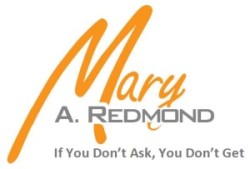If you purchase your used equipment from the leasing company at the end of the lease, did you know you could be held liable for environmental issues on leased assets? This is not something you want as a surprise!
1. If you sell used computers, add the computer serial number to the invoice. This helps the business avoid any possible environmental issues if that computer ends up in a landfill. The leasing company probably recorded the computer serial number on the UCC filing. Through online searches, the EPA can easily track the unit back to your company. Your company is liable for improper computer disposal, unless you prove someone purchased it.
2. When you purchase equipment from a leasing company, require an equipment lien release. At lease commencement, the leasing firm files UCCs with the state and county in which the equipment is located. This record is proof of their security interest in or ownership of the leased assets. Leasing companies do not have good end of lease follow up. Require them to do the right thing so you don’t run into problems.
At one of my recent workshops, an attendee confirmed his “best practice” when he sells used computers to employees. Richard (Dick) Nigon is the CFO of Robins, Kaplan, Miller & Ciresi LLP (RKMC) in Minneapolis. He told me that for each computer sold, his firm checks the used market price and offers the unit at a greatly reduced price. The firm also issues a bill of sale.
I enjoyed trading stories with Mr. Nigon and Ms. Chong Lee, Director of Facilities at Merchant and Gould PC, after the workshop. I presented Equipment Leasing: The Fine Print Financial Implications at the Association of Legal Administrators (ALA) 2010 Annual Conference.
Do you have a “best practice” with your equipment leases? Share it with others when you respond to this blog.


Mary, nice tip on the environmental liability of selling your used equipment to employees (or anyone for that matter).
I have also heard that it is paramount that the printer should scrub the hard drive resident on every copier or you could inadvertantly be passing on confidential client information that the printer had scanned and printed for the client to the new owner of the used equipment. This data is accumulated and stored on the copier hard drive until full. Not only could the printer inadvertently be embarrassed by releasing unknowingly client information but could be subject to painful liability issues.
Regards,
Clint Bolte
C. Clint Bolte & Associates
http://www.clintbolte.com
Thank you Clint. That is info I never thought of. Critical. Liability issues abound if this process is ignored.